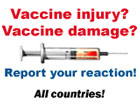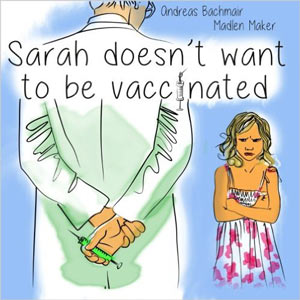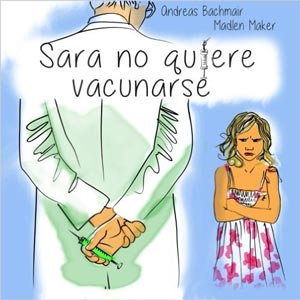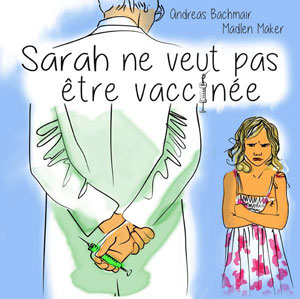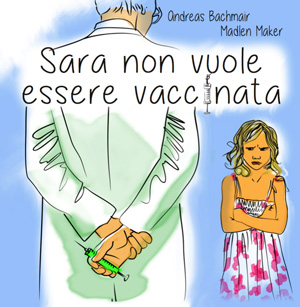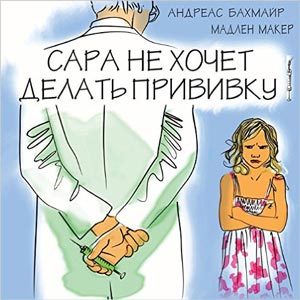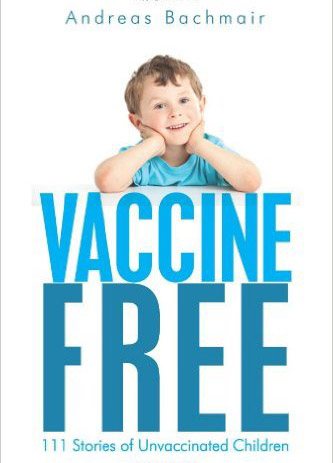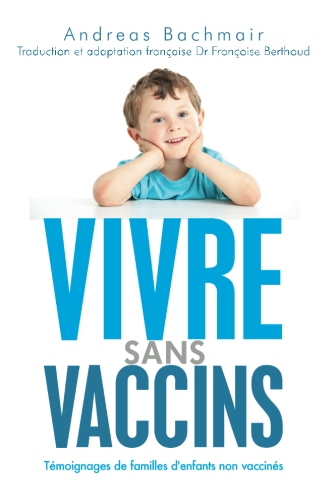Chickenpox-Vaccination
It was in July 2004 that STIKO (Vaccination Commission) started officially recommending the vaccination. The reason used to introduce the vaccination was that it could reduce the high number of infections and reduce the complication rate of 5.7 %(?); from an economic point of view it allegedly was a cost effective intervention. It was primarily American data and trials that people relied on.

Vaccine
There are two vaccines that have been approved in
Germany: Varicella-GSK and Varilrix. The human vaccine Varilrix contains a weakened varicella-virus, stem OKA min. 2000 plaque forming units (PFU), bred in cultures of human diploid cells (MRC-5). Additives: Neomycin-B-sulphate (max. 25 µg), amino acids, human albumin, lactose, mannitol, sorbitol.
Immunity
Immunity after vaccination is listed as follows for Varilrix:
The average seroconversion rate for children ages 9 months to 12 years was more than 98% six weeks after the vaccination. Antibodies persisted for at least seven years in children who were vaccinated when they were 12-15 months old.The seroconversion rate in adolescents 13 years and older was 100% six weeks after the second dose. One year after the vaccination all adolescents who were tested were still seropositive.
In an efficacy trial that lasted 29.3 months in small children aged 10-30 months the protective effect was 100% against clinically manifest varicella (more than 30 vesicles). The protective effect against all kinds of varicella (including light cases with at least one vesicles or one blister) was 88%. All cases were not severe and had a medium vesicle number of 1. There were no reports of fever.
In the
This suspicion was confirmed by Goldman in a trial in 2005 that mentions a drop in effectivity of 20% of the vaccination (Goldman GS: Universal varicella vaccination: efficacy trends and effect on herpes zoster.Int J Toxicol. 2005 Jul-Aug;24(4):205-13)
One of the causes could be a decrease in natural boostering as a result of a drop in infections with one o wild virus. Therefore the necessity of booster shots is already being discussed.
In this context, as early as April 2007 the Arzneitelegramm [German information service for the medical profession] reported that immunity from chickenpox vaccinations was subsiding. In a recent epidemiological study from
Side effects, complications arising from vaccinations and vaccination damages of the chickenpox vaccination in babies, children and adults
Chickenpox vaccinations are controversial, even in circles that normally recommend vaccinations. As a result of the vaccination the balance between chicken pox and herpes zoster shifts. A vaccination will reduce the number of chickenpox cases but at the same time there will be a rise in the number of herpes zoster cases. The greater the effectiveness of the vaccination the greater the number of herpes zoster infections (J Infect. 2002 May;44(4):211-9.Edmunds WJ, Brisson M. The effect of vaccination on the epidemiology of varicella zoster virus / Yih WK, Brooks DR, Lett SM, Jumaan AO, Zhang Z, Clements KM, Seward JF The incidence of varicella and herpes zoster in Massachusetts as measured by the Behavioral Risk Factor Surveillance System (BRFSS) during a period of increasing varicella vaccine coverage, 1998-2003.BMC Public Health. 2005 Jun 16;5(1):68.)
If you compare chickenpox and herpes zoster you can see that there are 300% more admissions to hospital and 500% more deaths (Data Reveals Threat of Shingles Epidemic From Vaccine Use Health Officials Threaten Legal Action Against Researcher Wednesday October 1, 7:40 am ET, http://biz.yahoo.com/prnews/031001/phw006_1.html)
Furthermore, the vaccination can trigger a reactivation in children who were already in contact with the varizella zoster virus and can thus cause herpes zoster. Normally herpes zoster does not occur in healthy children and adolescents.(Eur J Pediatr. 2002 Aug;161(8):442-4. Epub 2002 Jun 25. Uebe B, Sauerbrei A, Burdach S, Horneff G.Herpes zoster by reactivated vaccine varicella zoster virus in a healthy child.). Plse see General, the Goldmann trial (http://www.impfschaden.info/windpocken.htm )
In 5% of all people who have been vaccinated skin rashes that include papulous blisters. These blisters usually appear three weeks after the vaccination and the number of lesions is generally smaller than ten. During an observation period of six weeks after the vaccination in approx. 5% of all people vaccinated a fever of more than 37.5 °C (arm pit)/38 °C (rectal) was observed.
There is a danger of transference of varicella from people who have been vaccinated to people who have not been vaccinated. This can be particularly problematic for pregnant women (J Reprod Med. 1999 Oct;44(10):905-7. Huang W, Hussey M, Michel F.Transmission of varicella to a gravida via close contacts immunized with varicella-zoster vaccine. A case report.)
Due to the fact that it is a live vaccination, pregnant women should not be vaccinated! There are indications that there are severe damages (hydrocephalus) to the embryos. (Infect Dis Obstet Gynecol. 2002;10(3):159-60. Apuzzio J, Ganesh V, Iffy L, Al-Khan A.Varicella vaccination during early pregnancy: a cause of in utero miliary fetal tissue calcifications and hydrops?)
The leaflet that is included in the packaging for Varilrix states the following as side-effects: Local reactions (reddening, swelling, pain). General reactions (e.g. headache, rise in temperature, feeling of sickness). Allergic reactions (rare). Slight in all age groups. The reaction for risk patients days to weeks after vaccination include mild and short-term papulovascular rashes, rarely accompanied by a fever; primarily in patients who are undergoing maintenance chemotherapy.
Sources: Pictures taken from the article Chickenpox from Wikipedia and are listed under GNU-Lizenz für freie Dokumentation. You will find a list of authors there.


